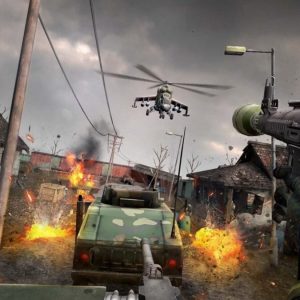, to the Oculus VR headset. This is part of a bigger push by Facebook into gaming which could also see the social media company acquire video game studios for itself.A new report from The Information says Facebook is looking seriously into beefing up its gaming business. CEO Mark Zuckerberg is apparently personally involved with Facebook’s strategy to get big video game franchises on the Oculus VR platform and make it more attractive to customers.
Part of this strategy involves working with big video game developers on well-known IPs. This is where Splinter Cell comes in. According to The Information, deals are already in place to bring Splinter Cell and Assassin’s Creed to Oculus VR. Facebook previously announced similar partnerships with other major developers like Respawn Entertainment on an original Oculus VR games.

Splinter Cell M.I.A.
There hasn’t been a mainline Splinter Cell game since 2013’s Splinter Cell: Blacklist. And while there have been rumors of a new Splinter Cell game for months, we still haven’t seen Sam Fisher in some time. Other than a limited-time, Splinter Cell crossover event with Tom Clancy’s Ghost Recon: Wildlands last year.
We reached out to both Ubisoft and Oculus to get more details about any potential VR partnership, but haven’t heard back by the time of writing this story.
The other part of Facebook’s gaming strategy involves acquiring video game developers to create games and IP exclusively for the Oculus. Oculus’ former head of content, Jason Rubin, is leading this initiative but no game studios have been named as possible targets for Facebook.
Despite Facebook’s ambitions for gaming, all of it revolves around the Oculus VR platform instead of more traditional video game consoles like the PlayStation or Xbox.
This year Facebook released the Oculus Quest, a $399 fully wireless VR headset that can run without needing to be hooked up to a PC. Sales for the Oculus Quest have reportedly exceeded Facebook’s internal sales projections, and VR and AR headset sales in 2019 are already up 54.1% from 2018.
VR Development Slips
But interest for developing VR games has fallen in 2019. According to a Game Developers Conference survey only 27% of developers are interested in making VR games, down from 33% last year. So, acquiring studios and inking exclusives are two sure ways to ensure content will come to the Oculus, and make the VR headset more appealing to potential customers.Matt Kim is a reporter at IGN. You can reach him on Twitter.























